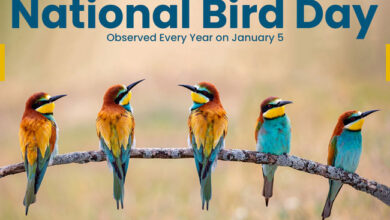Experience the Vibrant Traditions of the Tusu Festival
Experience the vibrant and colorful Tusu Festival, a celebration of harvest and folk traditions in East India. Join in the lively music, dance, and cultural performances while enjoying local delicacies and traditional crafts. Don’t miss this unique cultural experience at the Tusu Festival.
Quick Facts:
Date: The date of the Tusu Festival is January 14th.
Main Components: Main Components: Traditional dance and music performances, cultural rituals and ceremonies, food and craft vendors, and community participation in the celebration of the Tusu Festival.
Popularity: The Tusu Festival is a popular harvest festival celebrated in the Indian states of Jharkhand and West Bengal.
Pairings: Tusu Festival is a celebration of the harvest and includes traditional music, dance, and feasting.
Variations: Celebrating the Tusu Festival with traditional music, dance, and offerings to the goddess Manasa.
Introduction to Tusu Festival
The Tusu Festival is a traditional harvest festival celebrated by the Munda tribe in the eastern Indian states of Jharkhand, West Bengal, and Odisha. It is a time for the community to come together and give thanks for the bountiful harvest, as well as to pray for a prosperous year ahead. The festival is marked by colorful processions, traditional music and dance, and the offering of Tusu, a symbolic figure made of rice and straw. It is a vibrant and joyous occasion that showcases the rich cultural heritage of the Munda tribe and brings people closer to their roots.
The Tusu Festival is not only a celebration of the harvest, but also a time for the Munda tribe to express their cultural identity and preserve their traditions for future generations. Through rituals and performances, the festival serves as a reminder of the connection between the community and the land, and the importance of living in harmony with nature. The Tusu Festival is a beautiful and meaningful event that highlights the values of gratitude, unity, and respect for the environment, making it a significant and cherished part of the Munda tribe’s heritage.
History and origins of Tusu Festival
The Tusu Festival is a tribal festival celebrated by the people of the Santhal community in India. It is primarily a harvest festival that marks the end of the winter season and the beginning of spring. The festival is also associated with the worship of the deity Tusu, who is believed to bring prosperity and good fortune to the community.
The Tusu Festival has its origins in the Santhal community’s traditional agricultural practices and is a time for the community to come together to celebrate and give thanks for the bountiful harvest. The festival is marked by colorful processions, traditional music and dance, and the offering of prayers and rituals to the deity Tusu. It is an important cultural event for the Santhal people, and it serves as a reminder of their rich traditions and customs.
Significance and cultural importance of Tusu Festival
Tusu Festival is a significant cultural celebration in the Indian state of West Bengal, particularly among the Santhal tribe. It is a harvest festival that marks the end of the harvesting season and is celebrated with rituals, music, and dance. The festival holds great cultural importance as it is a time for the community to come together, express gratitude for the bountiful harvest, and seek blessings for the upcoming year.
The Tusu Festival also plays a vital role in preserving and promoting the traditional art forms, music, and dance of the Santhal tribe. It is a time for the community to showcase their cultural heritage and pass down their traditions to younger generations. The festival serves as a reminder of the rich cultural diversity and heritage of the Santhal tribe, making it an important event in the cultural landscape of West Bengal.
Traditions and customs associated with Tusu Festival
Tusu Festival is celebrated by the Munda and Oraon tribes in Jharkhand, India. It is a harvest festival that falls in the month of January. The festival is marked by the singing of traditional Tusu songs, which are dedicated to the goddess of crops and fertility. People also decorate their homes with colorful rangolis and offer traditional dishes to the goddess as part of the celebrations.
During the Tusu Festival, young girls and women gather to perform the Tusu dance, which is a significant part of the festival. They dress in traditional attire and dance to the beats of dhols and other traditional instruments. The festival is a time for the community to come together and celebrate their cultural heritage through music, dance, and customs that have been passed down through generations.
Tusu Festival rituals and ceremonies
The Tusu Festival, celebrated primarily by the Munda and Oraon tribes in Jharkhand, India, is a harvest festival that involves various rituals and ceremonies. The festival is marked by the worship of the earth goddess Tusu, who is believed to bring fertility and prosperity to the land. During the festival, people perform traditional dance and music, offer prayers, and make offerings to the goddess as a way to show gratitude for the bountiful harvest.
One of the main rituals of the Tusu Festival is the singing of Tusu songs, which are dedicated to the goddess and her role in bringing prosperity to the community. The songs are sung by women and young girls, who dress in traditional attire and form groups to visit different households in the village, where they receive gifts and offerings in return for their blessings. The festival is a time for the community to come together and celebrate the blessings of the harvest season.
Tusu Festival food and delicacies
The Tusu Festival is a celebration of the Santhal community in India, and it is marked by the preparation and consumption of a variety of traditional foods and delicacies. These include dishes like pittha, a rice cake stuffed with sweet or savory fillings, and dishes made from freshly harvested crops like rice, lentils, and vegetables. The festival also features special sweets like jaggery and coconut-based desserts, all of which are made using age-old recipes passed down through generations.
One of the most anticipated aspects of the Tusu Festival is the opportunity to enjoy the delicious and unique flavors of the traditional Santhal cuisine. Families come together to prepare and share these special dishes, creating a sense of community and connection through the act of cooking and eating together. The festival also provides a platform for local artisans and vendors to showcase and sell their homemade delicacies, adding to the festive atmosphere and bringing a sense of pride to the community.
Music and dance performances at Tusu Festival
The Tusu Festival is a celebration of music and dance, with vibrant performances that showcase the rich cultural heritage of the region. The festival features traditional folk music and dance, with colorful costumes and lively rhythms that captivate the audience.
Local artists and performers take center stage, showcasing their talents and passion for their art forms. The music and dance performances at the Tusu Festival create a joyful and festive atmosphere, bringing people together to celebrate and appreciate the beauty of traditional music and dance.
Modern day celebrations and adaptations of Tusu Festival
The Tusu Festival is a traditional harvest festival celebrated in the Indian state of Jharkhand. In modern times, the festival has seen adaptations and changes to incorporate new customs and practices. Many communities now celebrate Tusu Festival with music, dance, and feasting, while also incorporating modern elements such as fashion shows and talent competitions.
In addition to the traditional rituals of the Tusu Festival, modern celebrations also include events such as cultural performances, parades, and art exhibitions. The festival has become a time for people to come together and celebrate their culture while also embracing new forms of expression and entertainment.
Tusu Festival in different regions and communities
The Tusu Festival is celebrated in different regions and communities in India, with each place adding its own unique traditions and customs to the festival. In Jharkhand, the festival is marked with colorful processions, music, and dance performances, while in West Bengal, it is celebrated with elaborate rituals and offerings to the goddess Tusu.
The festival not only brings people together to celebrate, but also serves as a way to preserve and promote the cultural heritage of the various regions and communities. It provides an opportunity for people to come together and honor their traditions, while also sharing them with others.
Impact and future of Tusu Festival
The Tusu Festival is a traditional celebration in the Indian states of Jharkhand and West Bengal, where it is celebrated by the tribal communities. The festival is a symbol of agricultural prosperity and is marked by singing, dancing, and offering prayers to the deity Tusu. It has not only preserved the rich cultural heritage of the tribal communities but also serves as a platform for social cohesion and unity.
In the future, the Tusu Festival is expected to continue playing a significant role in the preservation and promotion of tribal culture and traditions. As awareness and interest in indigenous festivals grow, the Tusu Festival has the potential to attract more visitors and contribute to the local economy through tourism. Additionally, the festival can serve as a source of pride and identity for the tribal communities, ensuring its continued significance and impact for generations to come.
Hidden Facts
1. The Tusu Festival is a traditional harvest festival celebrated by the Santhal tribe in India.
2. It is also known as the Tusu Parab and is a significant cultural event for the Santhal community.
3. The festival is celebrated with music, dance, and the worship of the Tusu goddess, who is believed to bring prosperity and good fortune.
4. Tusu songs, known as Tusu Geet, are an important part of the festival and are sung by young girls as they go from house to house seeking blessings and offerings.
5. The festival is a time for the community to come together and celebrate their culture and heritage.
Top 10 Best Wishes For Tusu Festival
1. May all your prayers and wishes come true this Tusu Festival. #TusuFestival #Wishes
2. Wishing you happiness, prosperity, and good health on this auspicious occasion. #TusuFestival #Blessings
3. May the spirit of Tusu bring you joy and fulfillment in all your endeavors. #FestiveWishes #TusuFestival
4. Wishing you a colorful and vibrant Tusu Festival filled with love and laughter. #Celebration #TusuFestival
5. May the traditional rituals of Tusu Festival bring peace and harmony to your life. #Tradition #TusuFestival
6. Wishing you and your loved ones a Tusu Festival filled with togetherness and unity. #FamilyTime #TusuFestival
7. May the divine blessings of Tusu Festival guide you towards success and prosperity. #DivineBlessings #TusuFestival
8. Wishing you a Tusu Festival adorned with beautiful melodies and traditional dances. #Music #TusuFestival
9. May the spirit of Tusu Festival fill your heart with gratitude and contentment. #Gratitude #TusuFestival
10. Wishing you a memorable and joyous Tusu Festival celebration with your dear ones. #Memories #TusuFestival
Top 10 Best Messages For Tusu Festival
1. Celebrating the vibrant Tusu Festival with music, dance, and cultural performances! #TusuFestival #CulturalCelebration
2. Honoring the harvest season and paying tribute to nature’s bounty at the Tusu Festival. #HarvestCelebration #NatureBounty
3. Join us for the colorful and joyous Tusu Festival, a time for community bonding and festivities. #CommunityCelebration #JoyousOccasion
4. Embracing the traditions and rituals of the Tusu Festival, a time to connect with our cultural roots. #Tradition #CulturalHeritage
5. The Tusu Festival is a beautiful fusion of music, dance, and art, creating a mesmerizing spectacle. #ArtisticExpression #MesmerizingBeauty
6. From vibrant processions to lively performances, the Tusu Festival is a feast for the senses. #SensoryFeast #Celebration
7. Come experience the enchanting rituals and customs of the Tusu Festival, a time of spiritual significance. #SpiritualCelebration #EnchantingRituals
8. The Tusu Festival brings together people from all walks of life to celebrate unity and diversity. #UnityInDiversity #CelebratingTogether
9. Indulge in traditional delicacies and immerse yourself in the festive atmosphere of the Tusu Festival. #TraditionalCuisine #FestiveSpirit
10. Let’s come together to celebrate the Tusu Festival and create unforgettable memories with our loved ones. #MemorableMoments #CelebrationTime
Top 10 Best Quotes For Tusu Festival
1. “The Tusu festival is a celebration of harvest, community, and culture.”
2. “Tusu festival brings people together to honor the land and give thanks for its abundance.”
3. “The vibrant colors and traditional dances of the Tusu festival showcase the rich cultural heritage of the region.”
4. “Tusu festival is a time for families to come together, share meals, and strengthen bonds.”
5. “The Tusu festival is a beautiful reminder of the interconnectedness of all living things.”
6. “During Tusu festival, communities come alive with music, laughter, and joyous celebration.”
7. “Tusu festival is a time to reflect on the blessings of the past year and set intentions for the year ahead.”
8. “The Tusu festival is a time to express gratitude for the earth’s bounty and the hard work of farmers.”
9. “Tusu festival is a time to honor the cycles of nature and the importance of sustainability.”
10. “The Tusu festival is a reminder to cherish the gifts of the earth and to live in harmony with the natural world.”



